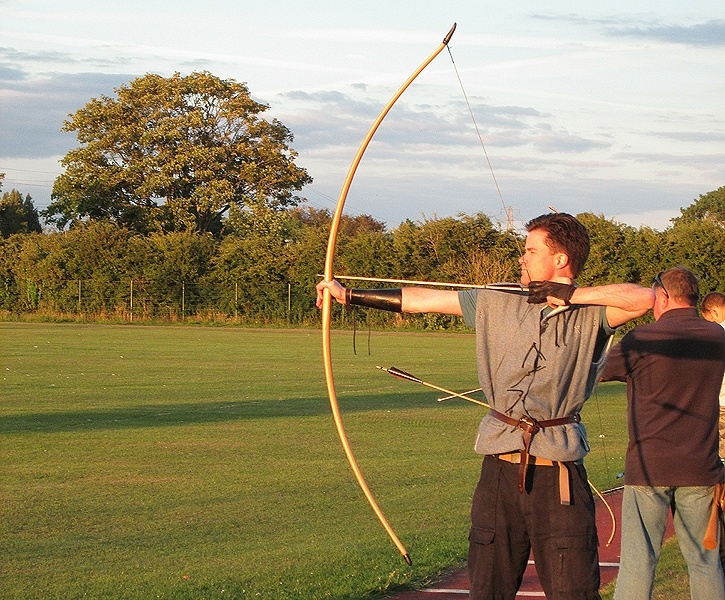- Home
- Krav Maga Blog
- Krav Instructors
- Train in Israel
- Tour Train Israel
- Krav Shop
- DVD
- Kickboxing
- IKI Near Me
- Seminars
- IKI Membership
- On-Line Training
- Krav Maga Training
- Testimonials
- History Krav Maga
- Instructors Page
- Past Blogs
- Spanish
- Italian
- Certification
- Contact
- Holland Seminar
- Vienna Seminar
- Poland Seminar
- Italy Seminar
- Belt Requirements
outdated methods of fighting
BY MOSHE KATZ
CEO
ISRAELI KRAV INTERNATIONAL
November 24, 2023
The day was the 25th of October 1415. England and France had been at war, on and off, since 1337, but today something would change. It is a change we should be aware of and should take note of.
Things change.
It was the Battle of Agincourt, 1415. Henry the 5th not only sat on the throne of England but also led his men in battle. Today would be a great victory over the French and a turning point in the history of warfare.
Throughout history major changes and innovations took place during times of war and as a result of the challenges presented by war. The first time a tank appeared on the battlefield opposing soldiers were in shock, felt helpless and overwhelmed. The first time a plane dropped bombs on infantry troops changed the rules of the game.
The rules of the game keep changing and a good player must stay on top of the rules. We can never be satisfied with yesterday's training, with yesterday's methods.
The French boasted an outstanding army, well trained and disciplined. They were a force to be reckoned with.
The French army was larger than the English army. The French population was 15 milion, five times larger than England of Henry the Fifth. The plague of the Black Death destroyed England and reduced its population to about 2.5 million. While exact figures are still unknown, we do know that the English army was outnumbered three or four or five to one. Marching towards the English was a force of some 20,000 French foot soldiers and mounted knights.
Henry's men were already very weary from hunger, illness and retreat. The Battle of Agincourt has a very special place in the English history and is considered the greatest English victory. Despite the small numbers, Henry V of England managed to defeat a much superior, larger, and better equipped French Army.
The French believed that by virtue of having a larger army they were guaranteed a victory. Anticipating the result of any conflict, by armies or individuals, is always a mistake. Henry the 5th on the other hand, was a firm believer of a trained, much smaller but highly disciplined army. He recruited skillful and brilliant people into his army and trained them so well that they could compete with any European army.
Heavy Armors
One of the factors that really hampered French victory was the way French soldiers dressed for the combat. Their heavy armors, almost 50 kg, restricted the soldier’s movement in the battlefield. On the other side, the British soldiers’ armors were not that bulky, and this gave them an edge over French troops. While France was relying upon old proven methods, England was being more innovative and forward looking.
Longbow Arrows
British Army had much more trained archers with very sophisticated longbows. British archers could wound at 400 yards and could manage a certain kill at 200 yards. If the target was within 100 yards range, arrows could penetrate through the armors. French lacked this expertise and had to face the consequences.
French Complacency
Over confidence is said to be the single most deadly sin the French Army committed towards this battle. They were so proud of their high numbers that French army had already started preparing to celebrate the victory, even before the first arrow was released. Some soldiers had prepared the special cart to parade the defeated English King. The night before the combat, when English soldiers were planning and preparing, the French ranks sang the songs of victory and taunted the English for their small numbers and imminent defeat.
Concepts of chivalry
English, emptied out the prisons, offered incentives and amnesty to those who joined the war effort.
Field of Battle
The field of battle was arguably the most significant factor in deciding the outcome. The recently ploughed land hemmed in by dense woodland favored the English, both because of its narrowness, and because of the thick mud through which the French knights had to walk.
Feudal approach of the French
French operated in the feudal manner, calling upon the aristocrats to appear, the English paid for an army, supported them and paid them. The French knight was a trained warrior, an elite warrior, fighting was the core of their existence. There were rules of combat, norms, how to treat prisoners, a code of chivalry. The French believed that only noblemen should serve in the army, to arm the plebeians would be a grave mistake. The English believed in arming everyone. Chivalry could not overcome superior weapons and superior strategy. The men and horses were cut down in minutes. This battle is notable for the use of the English longbow in very large numbers, with the English and Welsh archers making up nearly 80 percent of Henry's army.
It is said that 8,000 French knights were slaughtered in the first 90 minutes of battle.
Lessons for us today:
Never be complacent.
Never anticipate the result of a conflict.
Never underestimate your opponent.
Never rely upon old fighting methods. Always be innovative.

This is a deadly weapon.
Visit our other site
Israeli Krav International.com